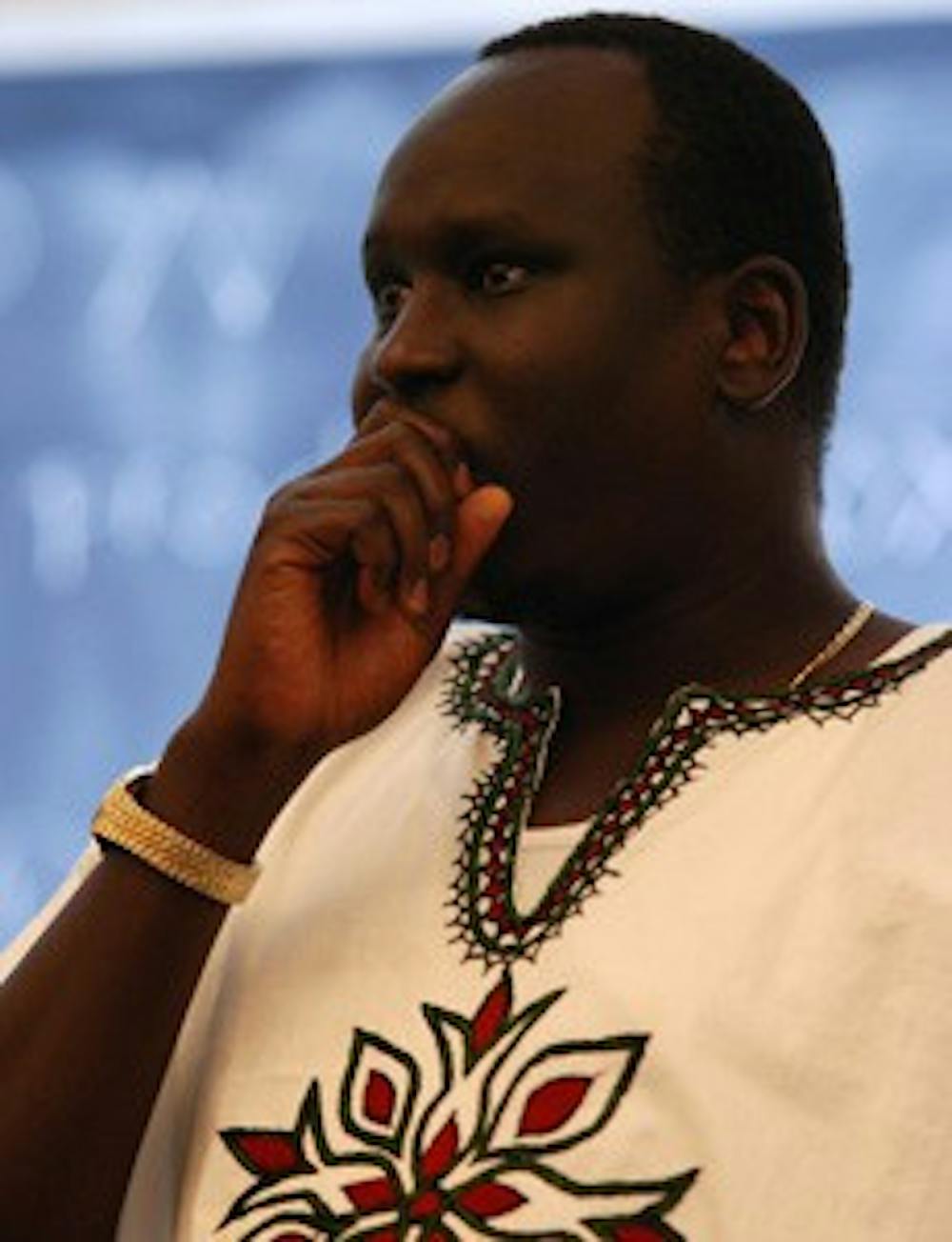Daoud Hari knows what it's like to be a refugee. He knows what it's like to flee from his own government, and what it's like to be imprisoned and tortured.
He knows, because he is a refugee from the genocide in Darfur.
Hari spoke to about 150 ASU students, faculty and community members Tuesday evening to share his experiences as a Darfurian refugee.
Along with Ibrahim Mousa Adam, another refugee, Hari came to ASU as a part of Voices for Darfur, a traveling presentation of the Save Darfur Coalition and sponsored by the ASU chapter of Students Taking Action Now: Darfur.
"I have a vision in the future that if the genocide was corrected, the Sudanese people would be secure," he told the audience. "Sudanese people would have peace."
The genocide in Darfur began in 2003 when the Sudanese government provided arms support to local militia, known as the Janjaweed, to wipe out native and rebel groups in the region.
The Janjaweed have since bombed numerous villages in Darfur and raped and killed village inhabitants there, according to the Save Darfur Coalition. The coalition is made up of 180 organizations that aim to find an end to the genocide.
Hari, who was once jailed and arrested while translating for a Chicago Tribune reporter in Darfur, shared numerous stories from his time in the region. Hari translated for media outlets such as The New York Times, BBC and National
Geographic, and while helping them, witnessed villages being burned down, victims being captured by the Janjaweed and the killing of numerous people, he said.
It's important to have U.S. commitment to ending the genocide because peacekeepers need to be sent into Darfur to make the country safe and secure, Hari said.
Adam, the other speaker in the presentation, escaped his village of Jadara where 20 members of his family were killed. He said the most important thing people could do to help stop the genocide is to ask lawmakers to put pressure on the Sudanese government.
"Your voice makes a difference to people of Darfur, because they know they are not alone," Adam said. "You can ask your President Bush, your government officials, to send peacekeeping forces into Darfur."
Calling for action from the government can help to save the lives of millions of people who have to leave Darfur, he said.
Rep. Ed Ableser D-Tempe, spoke at the presentation and said all students can have a part to help end the genocide in Darfur.
"I'm doing my part in raising awareness and educating other legislators about the issue," Ableser said. "One of the most important things you can do is to call on governments and ask them to step up."
Monica Pineda, the president of STAND, said she hoped the presentation would inspire others to help end the genocide in Darfur.
"I hope people got inspiration, education and awareness from this event," Pineda said. "By being aware, they have the knowledge to act upon it."
Reach the reporter at: amanda.chan@asu.edu.




